‘Tis the week of ambiguous productivity between Christmas and New Years when the kids are out of school, the resorts are packed, and the self-employed find themselves in a conundrum of motivation versus vacation. So, instead of writing anything new this week, or putting together a pile of links to everything I made over the last year, I’ve instead created this list of things that I read this year that made me want to write.
Inspiration isn’t the right word, these pieces didn’t spur me to creativity with some great blast of insight. Instead they motivated me to write more, read more, and just generally muck around with the written word. Nothing on this list is skiing related, because balance is good, and when I only consume skiing content, I often find myself in a bubble of shitty, overused tropes and phrases. So here are things that helped me write this year. Maybe they’ll help you, or maybe they’ll just kill some down time this holiday season.
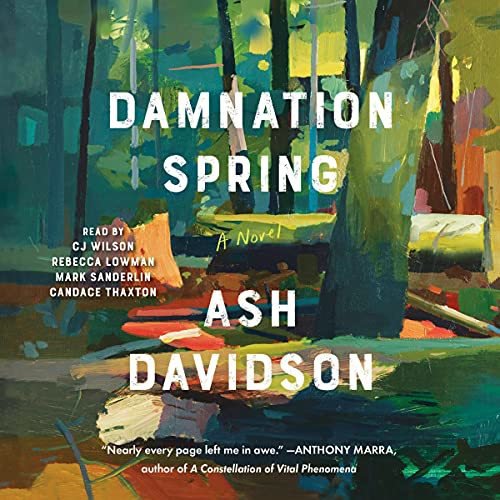
Ash Davidson
This was one of my favorite books in recent memory. It’s a well-researched, well-written novel about the tail end of old-growth logging in California. Davidson builds out the deep woods the book is set in subtly, but readers are left with an intense sense of place, I felt like I could smell every scene. And beyond exploring loggers’ relationship with the woods, it’s also a deeply human story of dependence and complicated relationships. It doesn’t hurt that the cover illustration is one of my favorite gouache paintings ever.
If you like Damnation Spring, you should probably read Barkskins by Annie Proulx. It’s an even broader story of logging in North America that manages to span centuries while still giving intimate glimpses of individual character’s stories. Proulx is probably best known for the short story Brokeback Mountain but in my humble opinion Barkskins is a magnum opus.
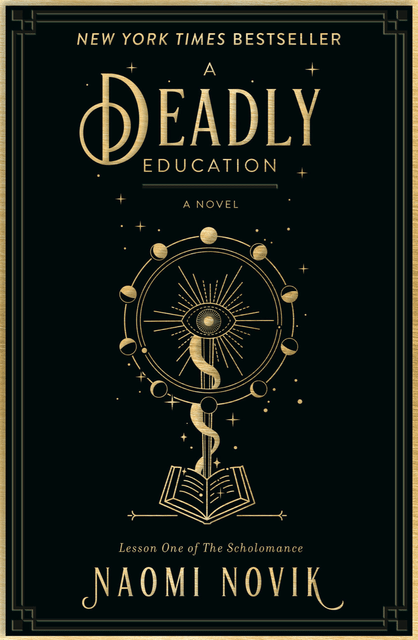
Naomi Novik
I’m a sucker for good fantasy, and A Deadly Education delivers that in spades. It’s a relatively quick read, but dense, with great character development and an easily accessible but unique writing style. If you like Harry Potter, but also understand that magic is better when it’s realer, more painful, and more gritty, you’ll get along fine with Deadly Education.
And, the best part: it’s part of a two book series, and the second book is already out. So you can get a nice satisfying conclusion to the story. Sort of. No spoilers, but neither book spares readers any emotional gut punches.
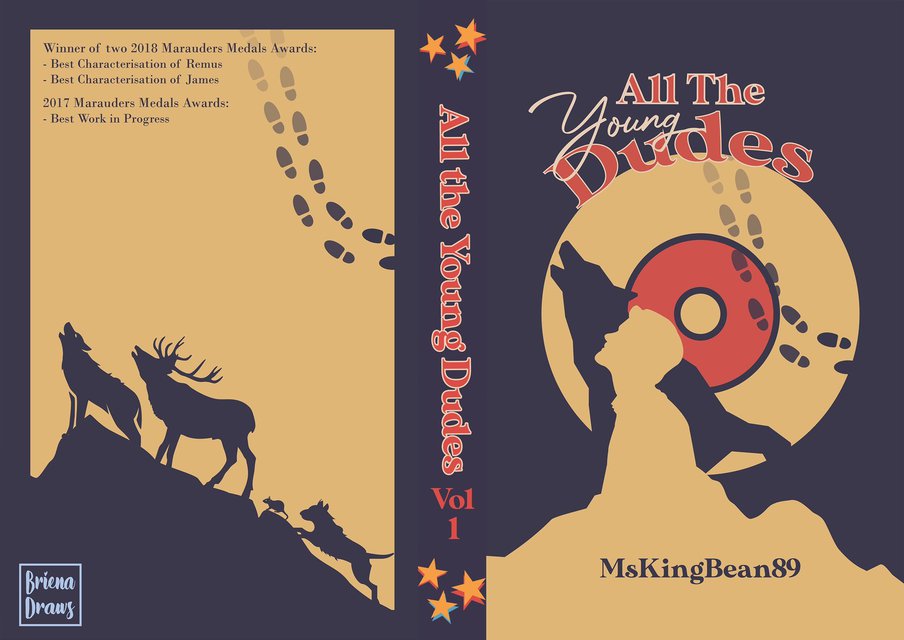
This is an article about a piece of fan fiction. I’m not generally a big lover of fanfic. Leave the classics alone dang it all! But, somehow, All the Young Dudes manages to give anyone who’s even a little bit of a Harry Potter fan a bunch more time in their favorite universe.
It’s hard to compare All the Young Dudes directly to Rowling’s writing, because well, it’s a completely different sort of work. All the heavy lifting of world building has been done. We know what all of these settings feel like. But, where the Young Dudes excels is fleshing out characters, building motivation for events that are predestined by the Harry Potter series, and creating a more adult, more realistic world.
It’s free, and easy to download to any e-reader, and it’s long, really long. As a little bonus, All the Young Dudes uses the music of the era as conceit, and there’s a great playlist of all the songs referenced in the book that makes for great listening.
If you were the right age to be stoked about Harry Potter when it came out, you’re probably about the right age now to identify with the existential malaise that All the Young Dudes captures so well.
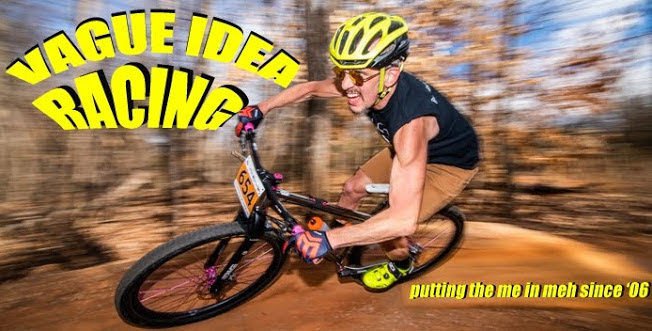
And now for something completely different! I love me a classic blog. Just a place to write long-ish form thoughts about whatever you happen to care about. Team Dicky happens to care a lot about bikes. He’s into a style of riding that’s not really my jam. I like gears and suspension and riding downhill a lot more than he does.
But he manages to capture a lot of the magic of grassroots racing, and competing even when there’s nothing of any real consequence on the line. And this blog has been around for a long time, even as blogs continue to die off. The linked post really struck a chord with me, as someone who spews words onto the internet regularly. What happens when we stop? Does it matter? If we die in the Metaverse do we die in real life? Who knows, who cares, but if you like reading about bikes, Dicky is worth a follow.
This blog is old news, and in answer to the question posed above by Dicky, it’s dead. But watching The Alpinist recently (I also highly recommend that film) reminded me of this blog I loved when I was just learning about climbing up mountains with skis. Leclerc wasn’t just one of the premier free-soloists of his time, he was also an excellent writer. I love the matter-of-fact style he uses to describe his ridiculous first ascents. He’s clear and concise, without ever being self-effacing or aggrandizing. He comes across as intelligent and level-headed, with a very clear view of his abilities and his goals.
Some climbing blogs and trip reports are so mired in technical jargon and obscure references that they’re approachable to the casual reader. Leclerc manages to tell stories that are interesting regardless of your level of experience with climbing.
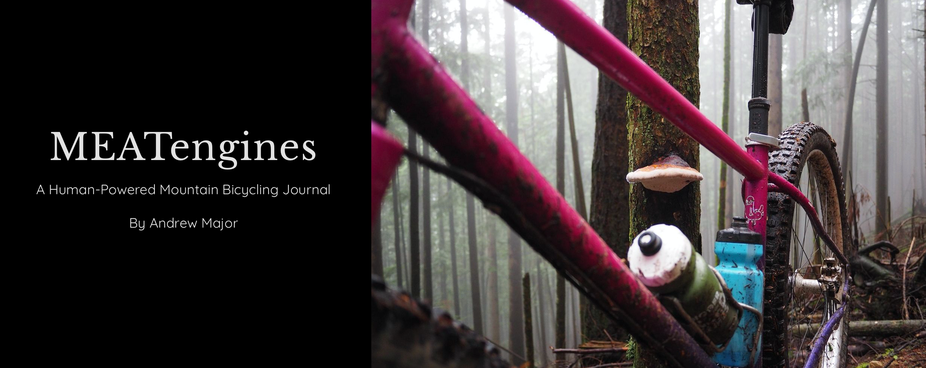
First of all, the name is great. Just perfect. I love Andrew Major’s writing on NSMB.com, but Meat Engines, his personal blog, is even weirder, and nerdier. Major cares about the details, he sweats the little things that make or break a piece of equipment, and as a fellow gear nerd, I find it fascinating, even though, again, I don’t really care for single speeding or rigid mountain bikes. If you like bikes, working on bikes, bike culture, or just reading pieces by someone who’s really knowledgeable and passionate about his subjects, Meat Engines has you covered.

The New Yorker’s Jeremy Strong profile
I like Succession, and I don’t typically like New Yorker style profiles. They just get generic very quickly, similar to many profiles of professional skiers. But this one is just brilliant. It walks the line between being catty and insightful delightfully. I laughed, out loud, multiple times throughout, and came away with more questions about my own masculinity and self-perception than answers. It’s worth a read, even if you typically don’t like these sorts of pieces.
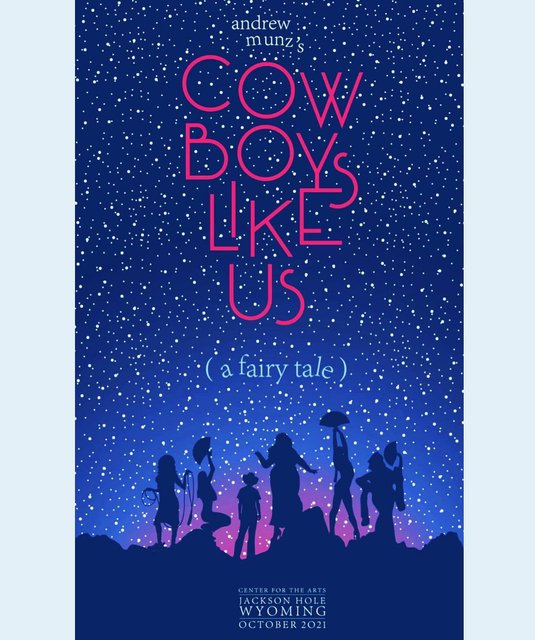
Cowboys Like Us
Andrew Munz
We don’t get a lot of live theater here in our small mountain community, which is part of what made Munz’s Cowboys Like Us so special. Real critics have written more insightful things about this show. All I can say is that it made me want to tell better stories, better. It was extravagant, it was emotional, I still feel weird when actors on a stage make me feel feelings, and the leftover pizza from before the show was pretty good cold. I don’t know, I’m still processing this one. But I’m so thankful it happened, and that I got to see it.
And, the book of Munz’s ski-themed plays, I Can Ski Forever is a pretty great read for skiers anywhere.
Conclusion
On Sunday I’ll have a roundup of things that made me want to draw things. But for now, what did you read this year that really left an impact?

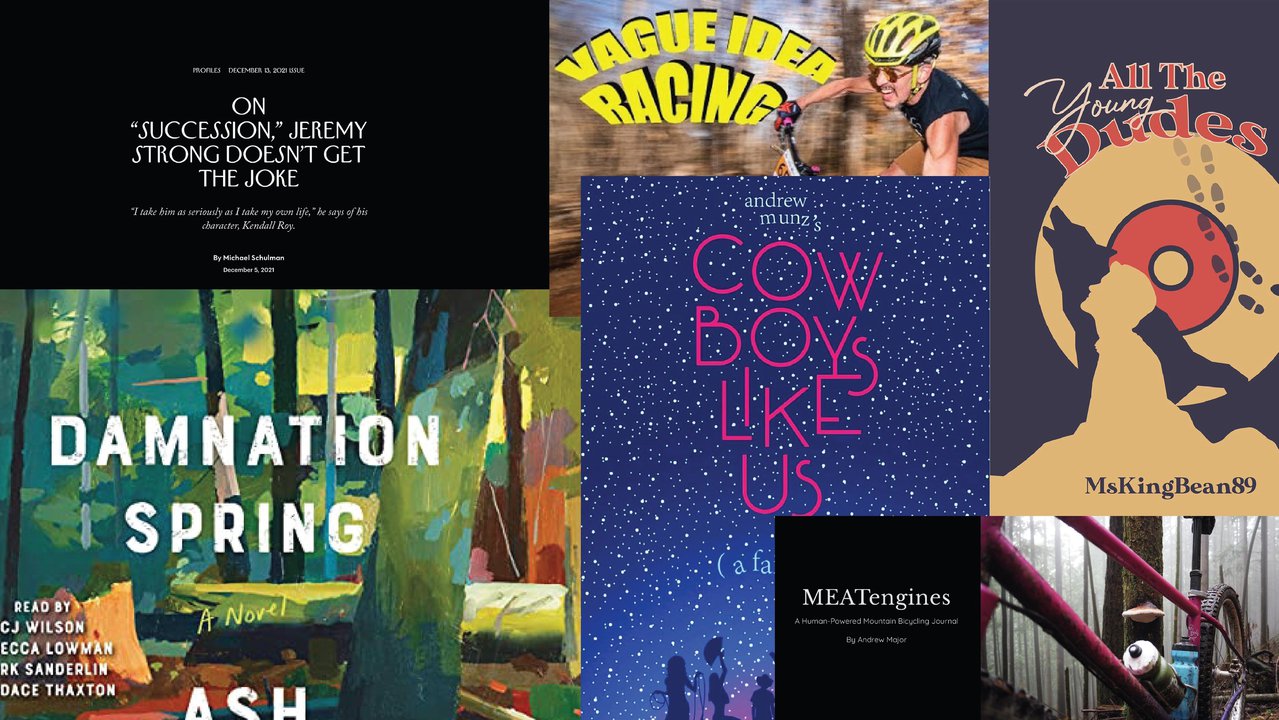
Comments